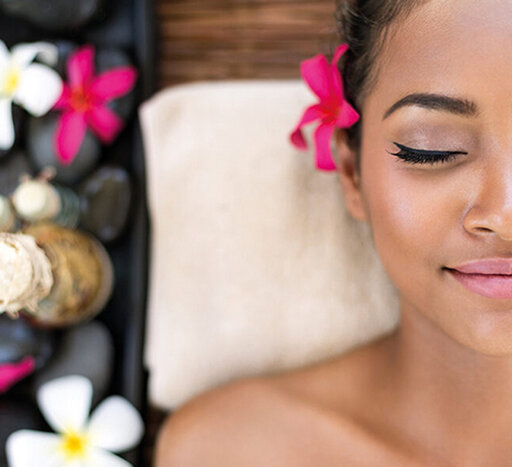Editorial
The holistic connection between skin health and emotional wellbeing: A new frontier for the cosmetics industry
INTRODUCTION
In recent years, the intersection of skin health and emotional wellbeing has garnered increasing attention. The body’s largest organ, the skin, not only acts as a protective barrier and sensory envelope but also reflects our internal emotional states. Emotional stress, anxiety, and other psychological challenges often manifest through the onset or aggravation of skin conditions such as acne, eczema, and psoriasis. Skin conditions can, in turn, impact self-esteem and mental health, leading to feelings of embarrassment, avoidance, anxiety, and depression. The cosmetics industry now has a unique opportunity to address these intricate complexities in personal care and self-care. By integrating the connection between skin health and emotional wellbeing, the industry can transform personal care from a superficial skincare routine into a holistic approach to overall health.
Skincare as a Path to Emotional Wellbeing
A key insight into the relationship between skin health and emotional wellbeing is the recognition that skincare routines can be powerful tools for emotional self-care. Traditionally viewed simply as the application of skincare products, skincare routines have evolved into multisensory rituals offering psychological benefits. The sensory elements of skincare—the soothing scents, the comforting textures, and the quiet moments of self-care—can profoundly impact daily mood and mental state. It is now up to the industry to create and scientifically substantiate the benefits of therapeutic experiences that provide more than just physical improvements in skin health.

There is an unequivocal opportunity to advance this area by focusing on product innovation that merges efficacy with emotional support within the constraints of regulatory boundaries. This involves not only selecting ingredients and interventions that benefit emotional wellbeing but also communicating these benefits clearly to consumers. Transparency about the proven effects of ingredients on both skin and mood can empower consumers to make informed choices to support their overall wellbeing. Techniques involving touch, such as product application and short massage routines integrated into daily skincare, are growing in popularity. Brands that prioritise this holistic approach can build stronger connections with consumers, offering products that serve to enhance self-care and emotional resilience rather than being just cosmetics.
REDEFINING BEAUTY STANDARDS THROUGH INCLUSIVITY AND AUTHENTICITY
Another significant theme is the role of the cosmetics industry in shaping and redefining beauty standards. Historically, the industry has promoted narrow, often unrealistic and unattainable, ideals of beauty, which may have led to dissatisfaction, negative self-perception, and low self-esteem.
The recent shift towards more inclusive and authentic beauty standards reflects a growing recognition of the need to represent a diverse range of beauty ideals, including a range of skin tones, body types, and ages. By embracing diversity, the cosmetics industry also fosters broader cultural acceptance of diverse beauty.
Authenticity in beauty is increasingly important. There is a growing desire for genuine and relatable representations. Consumers are drawn to brands that celebrate the freedom to be oneself and natural, healthy skin and beauty at all ages. By aligning with these values, the cosmetics industry supports emotional wellbeing by encouraging self-acceptance. This approach helps consumers feel valued, leading to higher self-esteem and a healthier relationship with beauty.
BRINGING PSYCHODERMATOLOGY INTO PERSONAL CARE
As someone deeply passionate about the emerging field of psychodermatology, I am dedicated to bringing this into the space of personal care. This entails highlighting the many profound aspects of the skin-brain connection to gain a deeper understanding of their bi-directional influences, which can be applied to more holistic product development and consumer education.
My vision involves promoting the science of emotional wellbeing as a vital part of daily skincare. By creating products that address physical skin health and support emotional wellbeing, we can offer a more comprehensive approach to personal care.
LOOKING FORWARD: THE FUTURE OF SKINCARE AND EMOTIONAL WELLBEING
I believe the cosmetics industry stands at a pivotal moment. The future of skincare lies in adopting a holistic approach that addresses both physical and emotional needs. This evolution will require ongoing innovation, transparency, and a commitment to inclusivity.
Advances in technology, such as artificial intelligence and data analytics, hold the potential to revolutionise the industry with highly personalised skincare tailored to an individual’s unique skin type and emotional state, adapting as their needs change. This will enhance both the effectiveness and meaningfulness of skincare as a tool for overall wellbeing.
My publications underscore the importance of synchronisation between these two aspects. In "Psyche, Skin, and Synchronization" (1), the intertwined relationship between the skin and the mind is highlighted, while "Skin Health & Mental Wellness: Underpinning the Science, an Exploration" (2) delves into the emerging science behind this connection. The recent discussion in the Cosmetics Cluster UK Webinar "Bringing Psychodermatology into the Realm of Personal Care" (3) further explored how integrating psychological and dermatological insights can drive innovation and create products designed to support mental wellbeing, such as skincare lines focused on stress relief due to life circumstances or lack of sleep, and mood enhancement.
The cosmetics industry must play an active role in advocating for mental health. This can include partnerships with mental health organisations or public awareness campaigns that help to destigmatise mental health issues and foster a more open conversation.
By embracing the principles of psychodermatology and focusing on inclusivity and authenticity, the personal care industry can create holistic, science-based products and experiences that support comprehensive health and happiness. Combining effective skincare with emotional support can foster a more positive and inclusive view of beauty. As the industry continues to evolve, we have the potential to enhance not only how people look but also how they feel, supporting consumers’ balanced and fulfilled sense of self.

